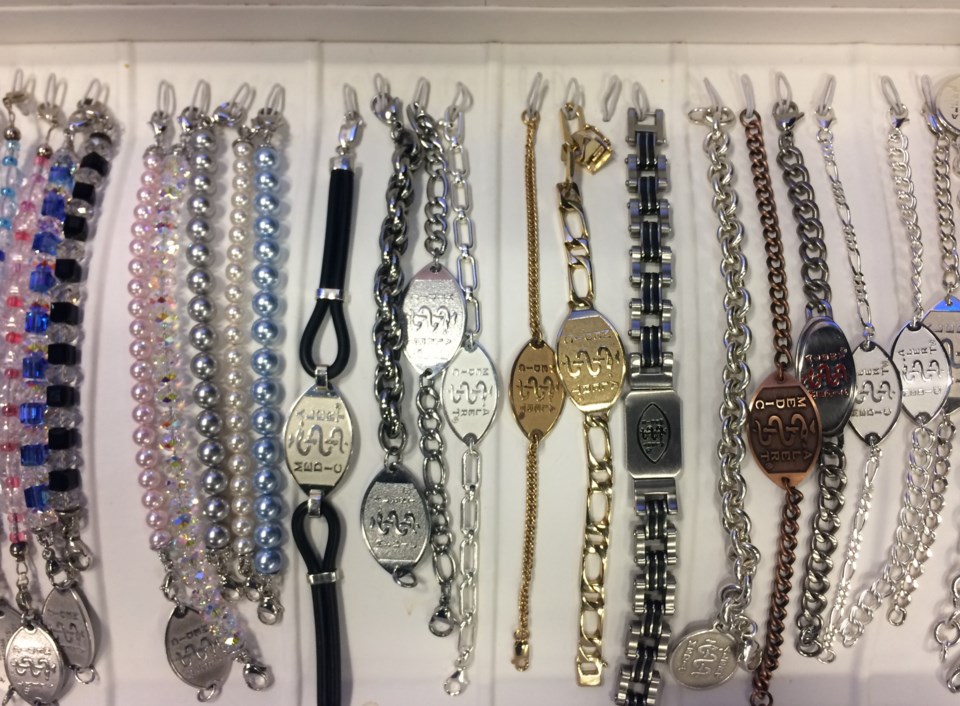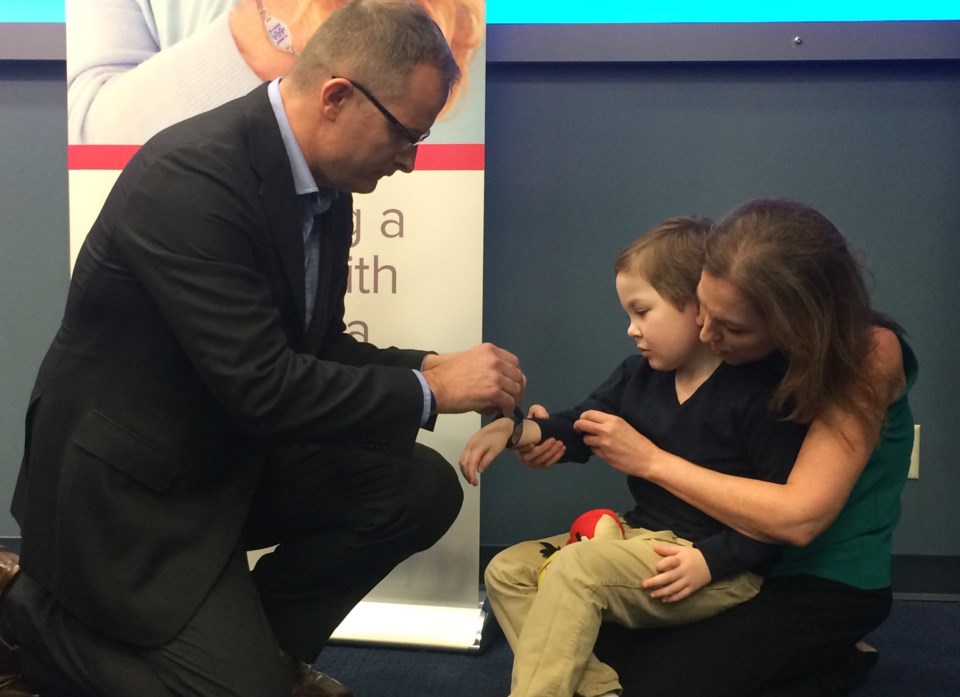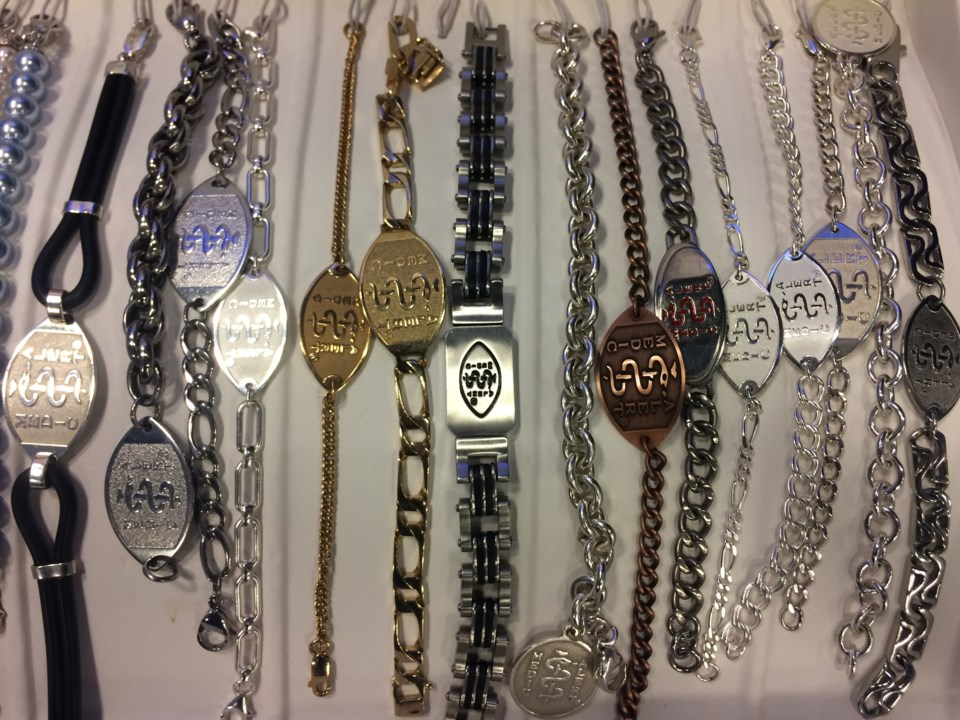A decade ago, Jim Mann was walking his chocolate Labrador in Surrey when a motorist pulled over and asked for directions. A retired administrator with a national airline, Mann knew the city’s streets from its avenues and many more details besides.
But the basics of his own neighbourhood suddenly eluded him. He was not even 60.
“I could tell her that street, but then couldn’t tell her this street,” he said of his conversation with the motorist. “Then I could tell her this street, but not that street.”
As Mann described the experience to a reporter today, he directed his hands at the intersecting streets he could envision in his memory. “Then I realized I didn’t know where I was or how to get home,” he said.
Soon after, Mann was diagnosed with Alzheimer’s. He remains ctive with the Alzheimer Society and is a former board member.
But when he was lost that first time on a residential sidewalk, he did his best to relax and figure out his surroundings. His dog, Bhreagh, led the way home. “She basically helped me. I found that I could stand there and calm the mind and we worked it out," he said.
Mann immediately registered for a MedicAlert bracelet and has worn it since 2007. He has never had to use it.
“It’s the peace of mind it brings me,” he said.
On Tuesday afternoon, he was present as Vancouver police chief Adam Palmer announced the city’s officers would be the first in Canada outside Ontario to have immediate and around-the-clock access to MedicAlert personal information in an effort to help identify a missing or wandering person and reunite them with family and care-givers.

“We can lead the way in increasing the safety of people living with Alzheimer’s, dementia, cognitive brain injury or autism and return them to their families as quickly as possible should they become lost, go missing, wander away, or become involved in an emergent situation,” said the police chief in a news briefing Jan. 31.
Palmer said the VPD receives roughly 5,000 missing person calls each year.
Announced today, the Connect Protect service was spurred by the Vancouver Police Foundation, which will pay for the service for the first 100 participants in Vancouver who are able to register here.
Subscribers to the service pay $60 a year to the MedicAlert Foundation Canada, which is a registered charity founded in 1961. The stainless steel bracelet was the first and only wearable option for years, however the recognizable decal and unique-to-a-person identification number can now be worn on dozens of styles and models suitable to people of varying tastes, gender and age.
During the announcement, a boy rolled on the carpet in front of the police chief at the podium, playing and speaking loudly to himself as he took in dozens of adults and television cameras around him and held a stuffed Angry Birds toy in each hand. As a child with autism spectrum disorder, he was one of the first two Vancouver recipients of a MedicAlert bracelet through Connect Protect.
His mother flattened his hair and asked him to approach the stage with her, saying, “Are you ready for your present now?” The president of MedicAlert then strapped on a bracelet as the boy sat in his mother's lap.

The Vancouver police have created multiple internal databases to help with missing person searches, but the partnership with MedicAlert allows them to tap into a system that is voluntarily supplied with information for self-identified vulnerable people who offer pertinent personal information such as recent photographs, medical history, history of wandering, as well as contact information for spouses and parents and care-givers.
The service can help narrow a search and also be used at the scene of an emergant situation. A confused individual can also ask a bystander for help by presenting the bracelet.
Robert Ridge, the president of MedicAlert, said Tuesday his organization receives roughly 500 calls each year on their 24/7, toll-free hotline relating to “wandering incidents” across Canada. This is their fourth partnership with a Canadian police department.
“Connect Protect benefits citizens who are prone to wandering away from their environment such as children and adults living with autism, seniors affected by dementia, and others with special needs or cognitive disorders,” said Ridge. “These people are our neighbours and our loved-ones, people we care about, and people we care for.”
For more information and to register, visit medicalert.ca/connectprotect.



